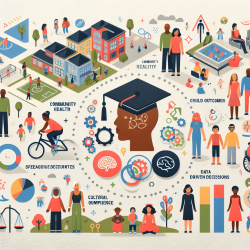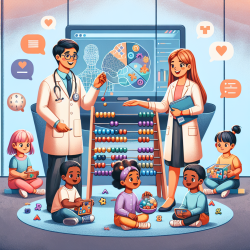Introduction
The COVID-19 pandemic has significantly impacted mental health across various populations, with college students being particularly vulnerable. The research article titled "Social isolation and psychological distress among southern U.S. college students in the era of COVID-19" sheds light on the mental health challenges faced by students due to social isolation during the pandemic. This blog post aims to explore the findings of this research and discuss how practitioners can utilize these insights to improve mental health outcomes for students.
Research Findings
The study conducted at the University of North Carolina at Chapel Hill involved a cross-sectional survey of 7,012 students. The results were alarming, with 64% of students reporting clinically significant depressive symptoms and 65% categorized as lonely. The study found a strong association between the extent of self-isolation and increased psychological distress, including depression, loneliness, and perceived stress.
Key findings include:
- Students self-isolating most or all of the time were significantly more likely to report depressive symptoms compared to those not self-isolating.
- Female students, minority students, and younger students were more likely to experience adverse mental health outcomes.
- The prevalence of psychological distress was higher among students who reported avoiding social gatherings and crowded areas.
Implications for Practitioners
These findings underscore the urgent need for mental health interventions tailored to college students. Practitioners can leverage this data to design targeted support services that address the unique challenges faced by students during periods of social isolation.
Recommended actions include:
- Implementing evidence-based mental health programs that focus on reducing stigma and increasing accessibility, especially for minority and low-income students.
- Promoting peer support initiatives, which have been shown to be effective in reducing depression among students who may not engage with traditional mental health services.
- Facilitating safe opportunities for social interaction to mitigate the effects of isolation and foster a sense of community among students.
Encouraging Further Research
While this study provides valuable insights, there is a need for further research to explore long-term impacts and develop comprehensive strategies to support student mental health. Practitioners are encouraged to collaborate with academic institutions to conduct longitudinal studies that examine the effectiveness of various interventions over time.
Conclusion
The prevalence of psychological distress among college students during the COVID-19 pandemic highlights a critical area for intervention. By implementing data-driven strategies and fostering collaborative research efforts, practitioners can play a pivotal role in enhancing mental health outcomes for students.
To read the original research paper, please follow this link: Social isolation and psychological distress among southern U.S. college students in the era of COVID-19.










